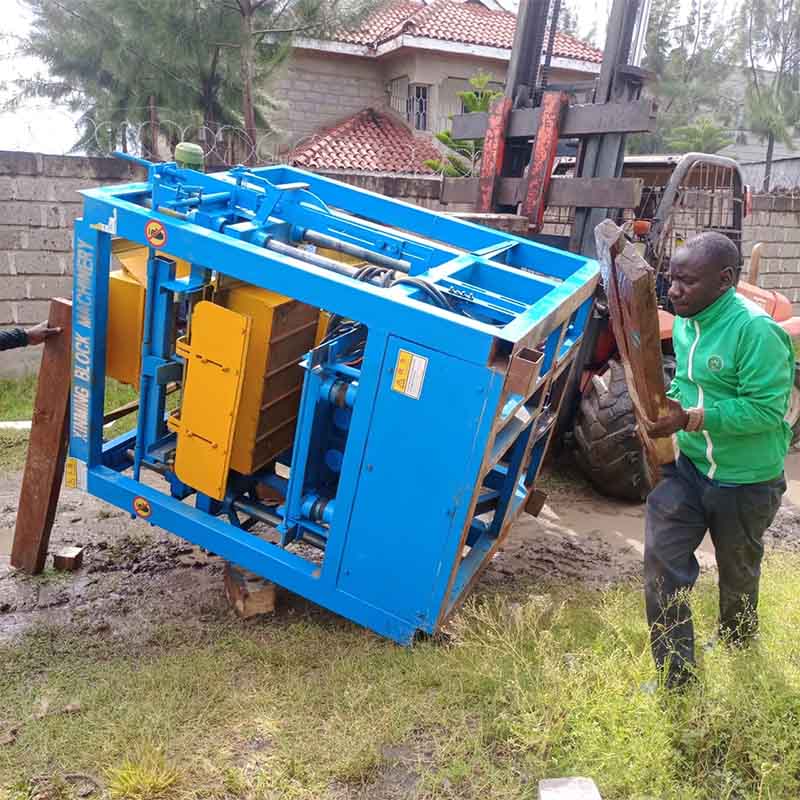
Image source :Aiweiblockmachine
The need for sustainable housing has become increasingly critical in our modern world. As the effects of climate change and environmental degradation become more apparent, the construction industry is seeking innovative solutions to minimize its ecological footprint. In this article, we explore the intersection of block making machines and sustainable housing. We delve into how these machines contribute to eco-friendly construction practices, reduce resource consumption, and promote the creation of energy-efficient and environmentally conscious homes.
The Urgency of Sustainable Housing
Sustainable housing addresses the pressing challenges of minimizing energy consumption, reducing greenhouse gas emissions, conserving natural resources, and promoting the well-being of occupants. Traditional construction methods often fall short in meeting these objectives. However, block making machines offer a promising pathway to achieving sustainable housing goals.
Efficient Use of Resources
Block making machines significantly improve the efficient use of resources in construction. By using these machines, builders can produce blocks that require fewer raw materials compared to traditional brick-making methods. For instance, concrete blocks made with block making machines use less cement while maintaining structural integrity. Additionally, the use of innovative materials, such as fly ash, recycled aggregates, or locally sourced materials, further reduces the environmental impact of block production.
Thermal Efficiency and Energy Conservation
Sustainable housing is closely linked to energy efficiency and thermal comfort. Block making machines contribute to these aspects in several ways. First, blocks produced by these machines can be designed with improved insulation properties, reducing heat transfer and enhancing the building’s thermal efficiency. This feature minimizes the need for excessive heating or cooling, thus reducing energy consumption and lowering carbon emissions.
Moreover, block making machines facilitate the creation of energy-efficient homes by integrating design features such as interlocking blocks or hollow blocks. These designs enhance insulation, reducing the reliance on heating and cooling systems. Additionally, blocks made with lightweight aggregates can improve the overall energy efficiency of buildings, reducing the energy demands for transportation and installation.
Durability and Longevity
Sustainable housing promotes longevity and durability to minimize waste generation and the need for frequent replacements. Block making machines play a vital role in this regard. Blocks produced by these machines are known for their strength, durability, and resistance to various environmental conditions. This longevity significantly reduces the lifecycle impact of buildings, as they require fewer repairs and replacements over time.
Furthermore, the use of advanced technologies, such as vibration and compaction methods in block making machines, ensures dense and solid blocks with reduced porosity. This feature enhances the blocks’ resistance to moisture penetration, preventing deterioration and extending the building’s lifespan.
Water Management and Environmental Considerations (approx. 500 words): Sustainable housing encompasses responsible water management and the preservation of natural resources. Block making machines contribute to this aspect by promoting the use of water-efficient designs and materials. For example, the use of hollow blocks allows for the integration of water management systems, such as rainwater harvesting or graywater recycling. These blocks can incorporate cavities for pipe installations or storage tanks, reducing water consumption and promoting sustainable water practices.
Additionally, the adoption of sustainable block-making practices includes careful consideration of wastewater management and the reduction of pollutants during the manufacturing process. Implementing recycling systems, treating wastewater, and minimizing the discharge of harmful substances are essential steps in achieving sustainable block production.
Social Impact and Affordability
Sustainable housing should be inclusive and affordable, ensuring access to safe and environmentally conscious homes for all. Block making machines contribute to this goal by streamlining construction processes, reducing labor requirements, and optimizing material usage. These efficiencies translate into cost savings, making sustainable housing more affordable and attainable for a broader range of individuals and communities.
Moreover, the promotion of sustainable housing practices through block making machines fosters job creation and local economic development. Training programs can be established to equip individuals with the skills needed to operate and maintain these machines, generating employment opportunities and empowering local communities.
Conclusion
Block making machines play a crucial role in advancing sustainable housing practices. By optimizing resource usage, enhancing thermal efficiency, promoting durability, and addressing water management concerns, these machines are transforming the construction landscape towards a more sustainable future. As we continue to address the challenges of climate change and environmental degradation, the integration of block making machines and sustainable housing practices becomes increasingly vital. By embracing these innovative technologies, we can build homes that are not only energy-efficient and environmentally conscious but also affordable, inclusive, and capable of withstanding the test of time.
